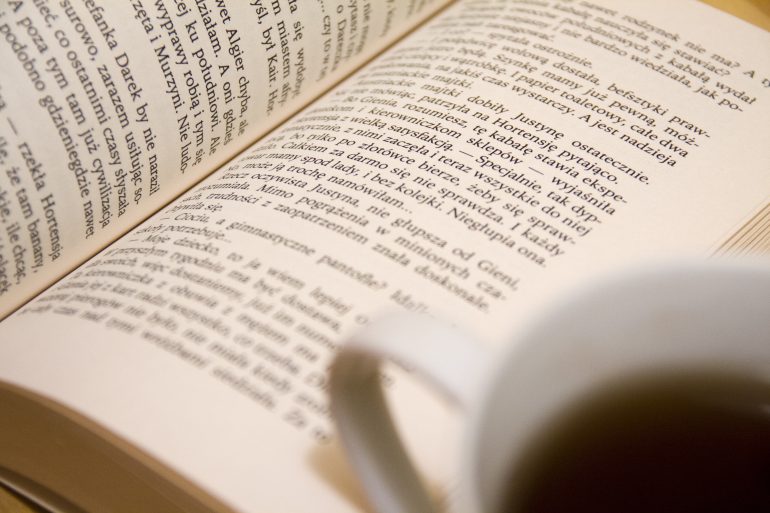As an avid reader and a queer person, it means more than words can convey each time I see myself represented well in a published novel. The book’s very existence seems to offer a confirmation: “Your identity is valid and worthy of portrayal in a public space where the rest of the world can interact with it.”
Yet there is one important aspect of my identity which I seldom see in media: asexuality. The singular work of fiction I have read with an explicitly asexual character was not my cup of tea: It was so short and fast-paced, it prevented me from forming substantial attachments to the characters. Most other instances I’ve come across have to do with aliens or vampires and apply to the entire species, as some sort of biological rule. To me, this is not proper representation.
So you can imagine my joy when, this past winter break, a close friend sent me a wonderful book with a gorgeous cover that deals not only with asexuality but also with what it’s like to be nonbinary in a highly gendered society.
This book is Vanilla, a 2017 novel by gay author and poet Billy Merrell. It tells the story of two boys, who have been a couple since the eighth grade, as they navigate high school and grow up together. What’s more, it is told not in traditional chapters, but through a series of poems, which offer unique insights into the minds of three main characters: the novel’s namesake, Vanilla; his boyfriend, Hunter; and a third-party the other students know casually as Clown. Luckily, it doesn’t take a font-lover to notice each character’s text is given a specific style, making it clear who is taking control of the narrative and when.
[WARNING: SPOILERS BELOW]
The main conflict in the book is a dilemma between Hunter and Vanilla, the latter of whom is often mocked for his so-called vanilla-ness. Namely, he refuses to have sex with his boyfriend, for reasons of which even he is unsure. Hunter initially defends Vanilla’s decision, but he soon grows tired of waiting, interpreting Vanilla’s nonexistent sex drive as a lack of interest in their relationship. While some characters attribute Vanilla’s reticence to internalized homophobia, Clown–who comes out as nonbinary a little over halfway through the book and changes their name to Angel–helps Vanilla realize there is nothing wrong with him by introducing him to the concept of asexuality, a topic which is seldom broached even in queer communities.
The friendship that blossoms between Angel and Vanilla, in particular, is a great example of queer solidarity. Though the story begins with the two as rivals, they learn to connect with one another through honesty and openness, and they each cultivate a newfound sense of appreciation for the other. This type of positive character development, revealed through patience and hardwork, compels people to move past their first assumptions about others in order to uncover the genuine person within.
While most readers might assume Hunter and Vanilla will be back together by the end of the novel, as the story draws to a close, they show no signs of becoming a couple again. Rather, they learn to forgive, understand, and reconnect with one another as friends and nothing else.
This disappointed me at first, as I believed it to be reinforcing the discouraging and often harmful stereotype that asexual people are hard to be involved with romantically. However, after mulling it over, it occurred to me this is an extremely important message for a book to send, as it encourages those who fall on the ace spectrum to embrace who they are and to stand by their decision whether or not to have sex. There are some things in a relationship that can be improved upon through hard work and open communication; still, I believe there are other things that cannot be compromised and which must be preserved in order for all partners involved to stay true to themselves.
Surprisingly, the author does not portray this caveat in a somber light. Rather, Merrell celebrates Vanilla’s newfound understanding of himself and emphasizes the hopefulness of his future. One of my personal favorite poems in the book, “Ace of Hearts,” includes such motivational lines as, “Love is possible, and with someone better suited for you,” and “Be true to yourself, and keep an open mind.” To me, such phrases serve as much-needed reminders that being asexual does not exclude the possibility of being in committed, loving relationships. Moreover, it is important to always keep one’s own personal well-being in mind. Such behaviors are not selfish, but incredibly vital and necessary.
One interesting thing to note about the novel is, in the acknowledgements, Merrell admits he did not intend for this book to be about asexuality. Instead, he explains how he unintentionally wrote an asexual character, something he only realized after getting advice from dozens of people. Yet this, he claims, paved the way for an ending that practically wrote itself. In this way, Merrell’s work emphasizes the importance of such narratives in mainstream media. Regardless of how they identify, readers, as well as authors, can learn from Vanilla’s plight and use the characters’ struggles to more deeply examine their own lives.
This novel is also important, in part, because it provides honest representation for people who may not be used to seeing themselves reflected in the books they read. Merrell explores multiple sides of diverse relationships, breaks down common questions and concerns about being asexual and nonbinary, and initiates an open dialogue about the two, as all the book’s characters are learning along with the readers. This makes Vanilla a great read for nearly anyone, whether or not they share or are familiar with the characters’ struggles, because it allows for a better understanding of various identities and their intersections with one another.


This book looks so interesting — I have to check it out!